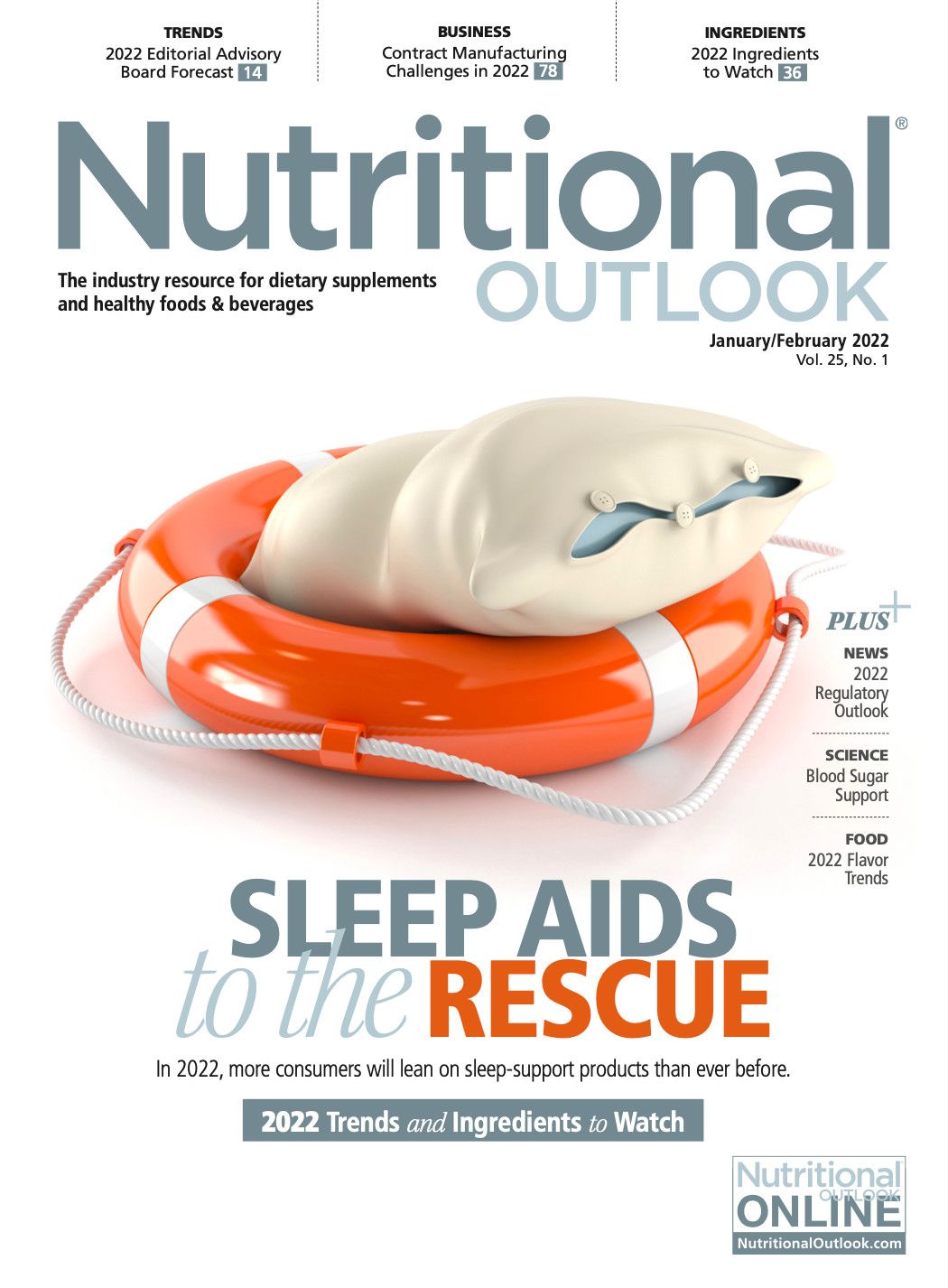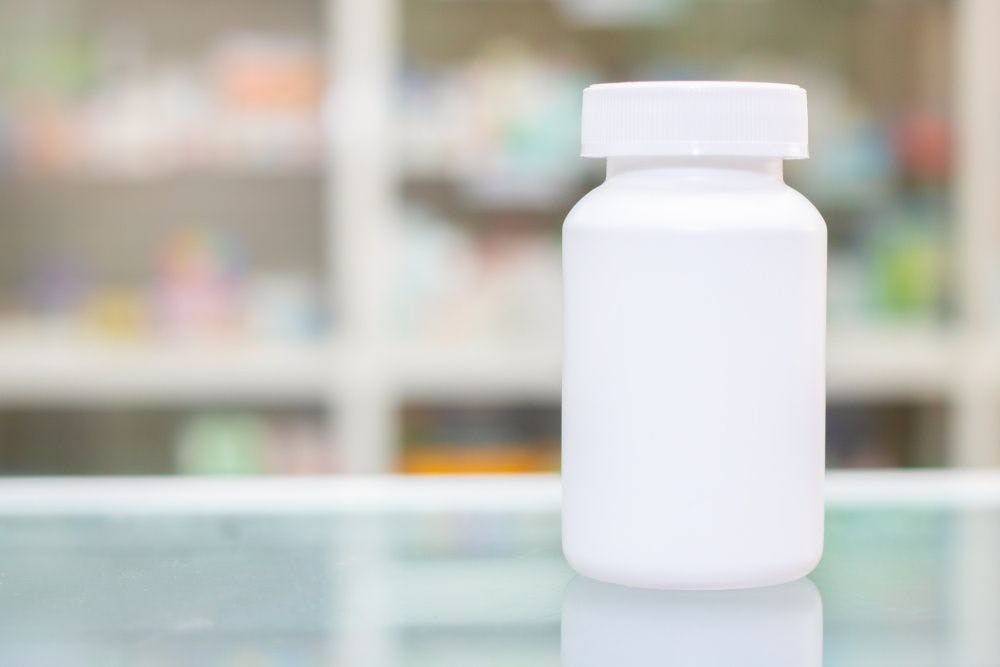Blood sugar supplements have a larger role to play in the global fight against rising blood glucose levels
No doubt diet plays a part in the rise and fall of blood sugar, so is there a place for dietary ingredients in helping consumers manage their blood sugar?
Managing blood sugar is serious business, and according to a 2021 study from researchers at the Johns Hopkins Bloomberg School of Public Health, it’s a problem that is getting worse for Americans.1,2
Using data from the National Health and Nutrition Examination Survey—the government-sponsored health study commonly referred to by its acronym, NHANES—the researchers analyzed trends in glycemic control in U.S. adults with diabetes. The results demonstrated that trend is heading in the wrong direction.1
The published findings indicated that, while over a 10-year period beginning in 1999, adults with diabetes demonstrated improved blood sugar control, more recent statistics showed there’s been a precipitous decline. Specifically, the proportion of adults with diabetes achieving glycemic control stood at 44% between 1999-2002, rising to 57.4% during the 2007-2010 period—but dropped to 50.5% during 2015-2018.1
It’s a problem no one should take with a grain of salt.
According to the Centers for Disease Control and Prevention (CDC), more than 34 million people in the U.S. have diabetes, with an additional whopping 88 million+ American adults believed to have prediabetes, a risk factor for progressing to full-blown type 2 diabetes. In 2017, the CDC estimated the diagnosed cost of diabetes, including medical care and workforce impact, at $327 billion.3
And yet is there a legitimate role for the dietary supplement and functional food industry to play? Even with these scary statistics, last June, 10 companies marketing products labeled as dietary supplements related to diabetes received a stern—and seemingly appropriate under the law—warning in a joint action from the U.S. FDA and the FTC. Those warning letters reminded the supplement industry (and alerted consumers) that “products intended to diagnose, cure, treat, mitigate, or prevent disease are drugs and are subject to the requirements that apply to drugs, even if they are labeled as dietary supplements.”4,5
Companies that take the law seriously also take that warning seriously.
But since diet plays a part in the rise and fall of blood sugar, is there a place for dietary ingredients in helping consumers manage their blood sugar? It’s a sticky wicket that reputable ingredient suppliers and product marketers should hold top of mind.
According to Rob Brewster, president, Ingredients by Nature (IBN; Montclair, CA), “Keeping ingredients regulation-compliant can be challenging but is important to the ingredient’s credibility.” His company, he says, works with a legal team that helps to “keep our claims within the bounds of safe and effective messaging and provide advice where we may have doubts.”
For Brewster, it’s important to “keep our messaging around the science we have, and phrasing is everything.” He is clear that the company’s blood sugar management proprietary ingredient, Eriomin, “…doesn’t cure or treat a disease like type 2 diabetes; it provides support to the body’s natural functions associated with blood glucose and works in tandem with healthy lifestyle changes, such as an improved diet and exercise, to influence the best possible outcomes.”
His advice to his colleagues is that by making the intent clear and claims honest, no company should have to worry about regulatory challenges and warnings from the FDA.
Brewster is just as clear when he says that “all consumers, especially U.S. consumers, should be taking a proactive stance on maintaining healthy blood glucose levels. It’s a serious problem, and the average American diet and the prevalence and convenience of unhealthy food isn’t doing the nation any favors.”
The Food Solution to Blood Sugar Management
Beneo (Manheim, Germany), a company known, among other things, for its ingredients and solutions in the blood sugar–support category, concurs that managing blood sugar is important for all consumers, not just those currently with diabetes, as a means of not reaching even the prediabetes stage.
Beneo supplies several ingredients with a variety of food and beverage applications for this market, including its well-researched functional carbohydrate, Palatinose, which can be used as a 1:1 substitute for sucrose or other high-glycemic sugars. Beneo also offers Isomalt, another low-glycemic sugar replacer, derived from pure sugar beet. An alternative route, according to the company, is its chicory root fibers, inulin and oligofructose, that replace available carbohydrates with dietary fibers that work effectively to help balance glucose response.
According to Anke Sentko, vice president, regulatory affairs and nutrition communication, Beneo, “Over the past few years, consumers and the authorities have increasingly demonized sugar and focused on the long-term effects of healthy sugar consumption. However, it’s important to look at the physiological quality of the carbohydrates we consume and not on food chemistry only.”
Sentko is concerned that the extreme focus on cutting carbs and reducing sugars “has drifted far apart from what is considered healthy nutrition.” She points out that carbohydrates are an extremely important nutrient necessary for our bodies to function properly. “Our brains run on glucose, and we need carbs to function and have energy,” she says. Her philosophy is that it is important to consume carbs in moderation and to choose the right carbohydrate—ideally one that provides the necessary energy for a person’s metabolism but also triggers a low and balanced rise in blood glucose and a low increase in insulin, as well as encouraging fat burning rather than fat storage.
Says Sentko, “The risk of developing non-communicable diseases, including diabetes, has been proven to lessen with a focus on the right diet and controlling blood sugar.”
She explains that as people age, many biological processes slow down, and the elasticity of metabolism is less effective. This includes insulin resistance and impaired glucose tolerance. Thus, this is another reason to manage the potential problem of blood sugar earlier in life, before it becomes a problem with serious consequences.
Like IBN’s Brewster, Sentko believes that blood sugar support extends beyond diabetes. “Blood sugar management and aiming for lower levels is relevant for anyone, from baby to seniors, not for prediabetes or diabetic situations only,” she says. “Healthy eating means that you want to avoid getting a disease in the first place. With attractive structure-function claims, manufacturers can reach their audience for blood sugar control.”
She adds that “in parallel, nutrition professionals like registered dietitians are eager to learn more on this broad topic and help consumers in their food choices.”
Partnerships Increase Consumer Education
Vous Vitamin, a personalized vitamin company cofounded by physicians Romy Block, MD, and Arielle Levitan, MD, is doing its part to educate consumers, especially those with diabetes, about the importance of controlling blood sugar, thanks to a new strategic partnership with Pops, a self-care platform for people with diabetes.6 According to a press release7, the partnership pairs two companies that are driving innovation in their respective spaces.
And although Vous Vitamin’s personalized recommendations for creating the right vitamin solution are not focused specifically on ingredients that are marketed as helping to manage blood sugar, that doesn’t mean the company is not interested in helping consumers find ways to improve health in this area.
As Block, an endocrinologist, explains, “Our formulations focus on improving vitamin deficiencies that may exist for our customers. These improvements lead to improved overall health and energy, which often manifests as increased exercise and weight loss.”
As it turns out, those health improvements are recommendations for people trying to improve their blood sugar numbers.
As an example, Block says, “Vitamin D deficiency can lead to depression and fatigue. Repleting vitamin D has been associated with lower HbA1c levels without changing direct insulin resistance measures.”8
Block advises that at Vous Vitamin, “we are always searching to update our formulations based on science and evidence. There are some interesting studies showing that fenugreek and cinnamon can both lower [blood] sugar [levels], but they have not shown any impact on complications or mortality.” She would like to see longitudinal and controlled studies, adding that “we are excited to see future outcomes.”
In the meantime, Block advises that “we are focused on making sure that we protect our diabetic customers’ overall health and prevent future complications.” She points to vitamin B12 as being important for those taking metformin, and B complex vitamins and alpha-lipoic acid as two nutrients she would recommend for those with neuropathy.
According to Brad Helfand, CEO, Vous Vitamin, “Broadly speaking, vitamins have been disintegrated and separate from traditional care models and chronic disease management systems. We saw an opportunity with Pops to embed personalized vitamin technology into a comprehensive diabetes management platform.”
It is Mina, Pops’s artificial intelligence (AI)–enabled virtual assistant, that is connected to the Rebel glucometer, he explains. Mina is now able to ask relevant questions about vitamins and ensure that patients have high-quality resources available to learn more about the potential value of certain vitamins to help with aspects of blood sugar control strategies.
Helfand views this partnership as not running afoul of the regulatory landscape because, he says, “we are not marketing vitamins as a treatment or cure for diabetes. It is simply a component of a sound and balanced overall nutrition approach that can be supported with the Pops platform.”
He also believes the partnership is a win-win for both parties. “For Pops,” he says, “this is an opportunity to add new capabilities to their virtual assistant and offer a more comprehensive array of services and education to their constituents.” And as for Vous Vitamin, Helfand looks at this partnership as “an important proof of concept that a personalized vitamin offering can enhance and add value to a chronic disease management platform.”
Helfand says that “Pops is progressive about how they think about their ecosystem partners, and we expect more telehealth platforms, wearable devices, and virtual health offerings will develop a similar outlook over time.” That forward-looking vision makes Vous Vitamin progressive, too.
New Supplement Science
Also looking forward are the scientists studying the potential health benefits of ingredients for blood sugar–support products.
Two studies9,10 published in 2021 tested delta-tocotrienol sourced from annatto—specifically, DeltaGold, a patented vitamin E ingredient produced by American River Nutrition (Hadley, MA). They discovered promising results in the areas of glycemic control and inflammation biomarkers in a population of type 2 diabetes mellitus (T2DM) patients.
Both studies were randomized, double-blind placebo-controlled trials, and each took place over a 24-week period.9,10 According to a press release from American River Nutrition, the first study results found that dosing 250 mg/day of the delta-tocotrienol annatto demonstrated “…improved glycemic control accompanied by reduced inflammation and oxidative stress and was further confirmed by modified miRNA expression” compared to a blinded, placebo group.11
Specifically, HbA1c levels were reduced from 8.3% to 7.8% in the treatment group, while levels in the placebo group remained at 8.4%. The high-sensitivity C-reactive protein, an inflammation marker, was reduced by 10% in the treatment group versus increased levels in the placebo group. The oxidative stress level was also lowered significantly in the treatment group, with the biomarker malondialdehyde (MDA) lowered by 9% compared to no change for the placebo group.11
Barrie Tan, PhD, president, American River Nutrition, stated that “for the first time, tocotrienol has been shown to reduce functional insulin secretion and successfully manage blood sugar via multiple avenues, thereby improving T2DM hyperglycemic control.”11
The second study administered 500 mg/day of delta-tocotrienol annatto and provided further evidence to support this ingredient for insulin resistance and blood sugar control. In a company press release, American River Nutrition stated that its branded ingredient, with or without resveratrol and vitamin D3, indicated “significant efficacy on fasting blood glucose, glycated hemoglobin (HbA1c), insulin, HOMA-IR scores, and various inflammation and oxidative stress markers.”
The study also found positive results for resveratrol and vitamin D3 in the areas of improved glycemic control, accompanied by reduced inflammation and oxidative stress.
Last November, IBN announced that the United States Patent and Trademark Office approved a second patent for the company’s use of eriocitrin in its ingredient formulations. Eriocitrin is the primary citrus flavonoid used in IBN’s branded Eriomin ingredients. According to the company’s press release, “The patent further solidifies the use of eriocitrin to support individuals with unhealthy levels of fasting blood glucose, such as prediabetics, by administering 50-600 mg of the citrus flavonoid for increased GLP-1 [glucagon-like peptide-1] levels.”12 Says IBN’s Brewster, “There are multiple facets to prediabetes management, and increasing GLP-1 plays a vital role in helping to support healthy blood glucose levels.”
In addition to a 2019 double-blind, randomized controlled study13 that found that “short-term intervention of Eriomin at doses of 200, 400, or 800 mg/day benefited glycemic control, reduced systemic inflammation and oxidative stress, and reversed the prediabetic condition in 24% of the evaluated patients,” Brewster advises there are also “several more very promising human clinicals in process” on the ingredient.
He teases results from the second human clinical study on Eriomin in this way: “Our second human clinical study on Eriomin is planned to be published soon, and we are very excited to share the results. Subjects of the study had very high prediabetic levels of blood glucose, and Eriomin didn’t disappoint.”
Future Innovation Key to Market Success
Brewster says that while there are some legacy ingredients like cinnamon and berberine in the blood sugar–support category, he doesn’t feel as though there has been much innovation in the space until recently.
True, health professionals have increased efforts in the last few years to better educate consumers about how to manage blood glucose levels for better health outcomes overall, says Brewster. But, he adds, “most of these commonly recognized ingredients that help manage blood glucose levels typically only address insulin resistance, and only a few ingredients address those two factors.”
That’s why he is so excited about what he calls Eriomin’s triple-pronged functionality: helping to improve insulin sensitivity for direct blood glucose management, indirect support through its potent antioxidant activity, and powerful inflammation regulation. “Our initial human clinical [trial] observed improved biomarkers across each of these functions,” he says.
With IBN’s recent acquisition of the ingredient Sytrinol for heart health, Brewster is interested in discovering ways to combine that ingredient with Eriomin for synergistic benefits. “Sytrinol helps to reduce LDL cholesterol and triglycerides, which may have a positive impact on Eriomin’s blood glucose support functions,” he says.
“There continues to be a need for more science, and that’s what we aim to bring,” states Brewster.
Another innovative approach for IBN is to focus on blood glucose management beyond prediabetes benefits. “For example, we launched Eriomin Esport with the intention to educate that healthy blood glucose levels have an influence on the performance of gamers,” says Brewster. “I think we are going to see the category cross more into other categories as the research catches up and shows us that the benefits of healthy blood glucose to the body are more widely integrated than many realize. And it’s our aim to be at the forefront of that research to help introduce more applications for blood glucose–management ingredients.”
Beneo’s Sentko is intrigued by how improved technical application work for functional ingredients will help the market achieve additional goals for producing nutritious food.
“Recently, A*STAR14, an institution very active in supporting the war-on-diabetes campaign in Singapore, developed a product, which was a plant-based cookie with a glycemic index (GI) of only 24. This was adapted from a traditional but already-low-GI cookie with a GI of 54,” she shares. “A 24-hour measurement on blood glucose was done with the cookies eaten for breakfast and an afternoon snack and a standardized lunch and dinner. The results show a lowered blood glucose response throughout the day from eating this low-GI cookie,” Sentko adds.
“This is what we envision: a variety of great-tasting, low-glycemic food choices that simplify choices for people who are interested in this way of eating,” states Sentko. “The global burden of noncommunicable disease such as overweight and obesity, diabetes, and cardiovascular diseases forces us to rethink the nutritional quality of our foods and carbohydrate quality in our diet.”
Sentko believes consumers are increasingly interested. She references a consumer survey that Beneo conducted with InSites Consulting that showed that 78% of those aged 65-75 in the U.S., Asia, and Europe are now paying attention to their sugar intake.15
It’s a good start. And good news for the functional food and dietary supplement industry.
References
- Press release. “Major Study of Diabetes Trends Shows Americans’ Blood Sugar Control Is Getting Worse.” Johns Hopkins Bloomberg School of Public Health. Posted June 7, 2021.
- Fang M et al. “Trends in diabetes treatment and control in U.S. adults, 1999–2018.” The New England Journal of Medicine, vol. 384, no. 23 (June 10, 2021): 2219-2228
- Fact sheet. “Diabetes and Prediabetes.” National Center for Chronic Disease Prevention and Health Promotion, Centers for Disease Control and Prevention. Updated November 3, 2020.
- News release. “FDA, FTC Warn 10 Companies Illegally Selling Dietary Supplements Claiming to Treat Diabetes.” FDA website. Posted September 9, 2021.
- Press release. “FTC Sends Cease and Desist Demands to 10 Companies Suspected of Making Diabetes Treatment Claims Without the Required Scientific Evidence.” FTC website. Posted September 9, 2021.
- Pops Diabetes Care Inc. website.
- Press release. “Vous Vitamin Partners with Pops to Help People with Diabetes Control Blood Sugar.” Posted October 6, 2021.
- Dali S. “Vitamin D supplementation lowers HbA1c levels in T2DM: Study.” Medical Dialogues. Published October 17, 2021.
- Mahjabeen W et al. “Effects of delta-tocotrienol supplementation on glycemic control, oxidative stress, inflammatory biomarkers and miRNA expression in type 2 diabetes mellitus: A randomized control trial.” Phytotherapy Research, vol. 35, no. 7 (July 2021): 3968-3976
- Qureshi AA et al. “A novel mixture of δ-tocotrienol, vitamin D3, resveratrol (NS3) significantly decreases diabetes biomarkers including inflammatory in people with type 2 diabetes.” Journal of Diabetes and Clinical Studies, vol. 5, no. 1 (2021)
- Press release. “Annatto Tocotrienol Improves Glycemic Control in Patients with Type 2 Diabetes Mellitus.” American River Nutrition website. Posted May 18, 2021.
- Press release. “Ingredients by Nature Receives Patent Approval for Increasing GLP-1 Levels with Eriocitrin.” Ingredients by Nature website. Posted November 3, 2021.
- Ribeiro CB et al. “Effectiveness of Eriomin® in managing hyperglycemia and reversal of prediabetes condition: A double‐blind, randomized, controlled study.” Phytotherapy Research, vol. 33, no. 7 (July 2019): 1921-1933
- Agency for Science, Technology and Research (A*Star) website.
- InSites Consulting. Beneo Consumer Research on Nutrition & Health, Q4 2020 (Asia, Europe) to Q2 2021 (U.S.)

Prinova acquires Aplinova to further increase its footprint in Latin America
April 7th 2025Prinova has recently announced the acquisition of Brazilian ingredients distributor Aplinova, which is a provider of specialty ingredients for a range of market segments that include food, beverage, supplements, and personal care.


























